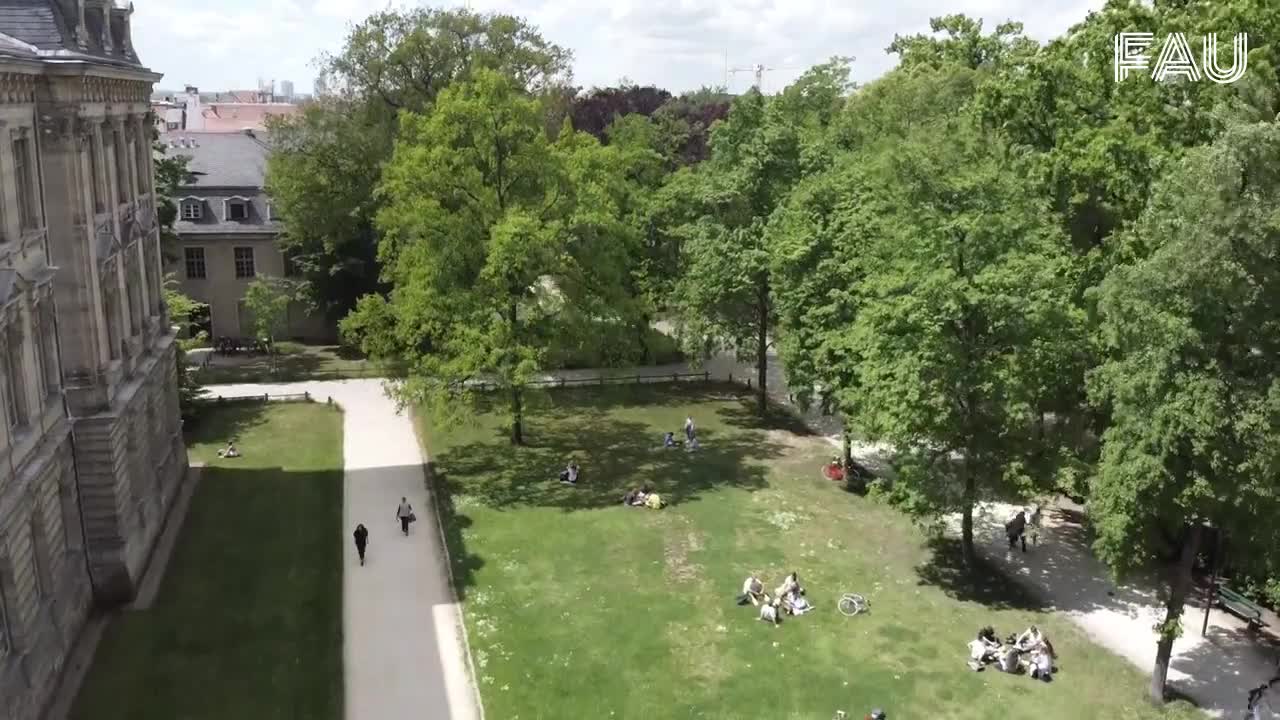Islamic Religious Studies
Islamic Religious Studies (B.A.)

Are you interested in Islam and would like to learn more about the traditional scriptural foundations, religious norms and methods, schools of Islam and religious doctrines, religious practices, cultural history and contemporary theological issues? Then the Islamic Religious Studies degree program at the University of Erlangen is just right for you!
As a student, you will receive the necessary reference and technical language basics to read and understand simple Arabic source texts. Take advantage of this opportunity to study Islam in depth and become part of a growing community of people interested in these topics. Apply now for the Islamic Religious Studies degree program at the University of Erlangen and start your career in this exciting field!
- Degree
- Bachelor of Arts (B.A.)
- Duration of studies in semester
- 6
- Start of degree program
- Winter semester
- Study location
- Erlangen
- Number of students
- 1-50
- Subject group
- Language and Cultural Studies
- Special ways to study
- 1-subject Bachelor, 2-subject Bachelor, Part-time degree program
- Teaching language
- completely in German
- Admission Requirements
- No Admissions Restrictions
- Keywords
- History, Islamic studies, Culture, Religion, Language
What is the degree program about?
For some years now, the perception of Islam in society and politics has been steadily increasing. In academia, this interest is reflected not least in the four major centers of Islamic theology in Germany, one of which is located at the University of Erlangen. The focus of this degree program is on topics dealing with traditional scriptural foundations, religious norms and methods, schools of Islam and religious doctrines, religious practices, cultural history, and contemporary theological issues. As a student, you will acquire the necessary reference and technical language skills to read and understand simple Arabic source texts. The course does not focus on a specific orientation of Islam – rather, the various orientations are addressed and discussed. Even though the BA Islamic-Religious Studies is not primarily about the so-called „imam training“, there is nothing to prevent this training from being recognized. In this case, a second phase of training is under discussion (but not yet planned), perhaps corresponding to the church vicariates.
-
The degree program can be studied as a single-subject or a two-subject bachelor’s degree.
The degree program consists of compulsory and elective modules.
Compulsory modules are Arabic 1-4 as well as lectures and seminars from the subject areas of scriptural basics, religious studies, and social action. In the first four semesters, students acquire a basic knowledge of the Arabic language and a broad base of fundamental knowledge in Islamic religious studies.
After the first year of study (i.e. after the second semester), students take a foundation and orientation exam, which is considered passed if at least two modules (Arabic I, Quran/Hadith) have been successfully completed. The second study phase (fifth and sixth semesters) is characterized by the deepening of the subject areas and language skills. In the context of the bachelor thesis in the sixth semester, students are instructed in independent scientific work.
-
One-subject Bachelor Islamic-Religious Studies
The Bachelor’s degree program in Islamic-Religious Studies is an Islam-related program with the characteristics of an undergraduate theological program (1-subject BA, 6 semesters). It qualifies students for existing and new professional fields and prepares them for a subsequent research-related master’s degree program.
The BA IRS takes into account normative, analytical, methodological, discursive and practical approaches to Islam. It lays the necessary foundation in the Arabic written language as a reference of Islamic source texts. With regard to Islam as a system of religious interpretation, it takes into account systematic, practical, ethical and philosophical aspects.
The BA IRS prepares students for specific action competence and personal commitment in special religion-related areas, for example, pastoral care, ritual practice, community affairs, youth work, and educational management (instrumental, generic, and communicative competencies). In addition to the compulsory foundations, the elective area allows students to set their own personal focus in their studies.
Two-subject Bachelor of Islamic-Religious Studies
The degree program, which can only be studied as a second subject within the two-subject bachelor’s degree (BA), is aimed at students who want to profile a specific social or cultural science competence through a focus on „Islam“. The acquisition of knowledge in the first subject is strengthened by a higher proportion of teaching (instead of 90, 110 ECTS), since the BA IRS only comprises 70 ECTS credits and one cannot write a Bachelor’s thesis here. The degree is therefore awarded in the first subject (e.g. Sociology with a focus on Islam). Why should I study the second-subject BA? Because society has a need for consultation regarding Islam. More and more experts are needed to advise political actors (communities, countries, parties), the economy, administrations as well as medicine in specific Islamic questions (theological background and religious regulations, differences between schools and cultures, ways of life etc.). These are very good career prospects.
-
- A keen interest in religion, especially Islam of course
- Willingness to work with other people
- Problem-solving oriented thinking
- Ability to reflect on one’s own religious positions
- Enjoyment of interdisciplinary and comprehensive study of the subject of Islam
-
The occupational fields presented here represent only a small selection of potential fields of work. In principle, the Bachelor’s degree in Islamic-Religious Studies qualifies graduates to pursue the research-oriented Master’s degree in Islamic-Religious Studies and provides basic competencies for the following areas:
- Academic activities in the field of Islamic-Religious Studies.
- Consulting in business and politics
- Community work
- Pastoral care
- Child and youth work
- Adult education
- Media and journalism
-
Possible as a single-subject bachelor’s degree or as a second subject in a two-subject bachelor’s degree. Can also be studied part-time.
-
Degree program combinations
- Art History
- Book Studies
- Business and Economics
- Chinese Studies
- Cultural History of Christianity
- Education
- English and American Studies
- French Roman Studies
- German studies
- Greek Philology
- Hispanic Studies
- History
- Indo-European and Indo-Iranian Studies
- Japanese Studies
- Latin Philology
- Medieval Latin and Neo-Latin
- Philosophy
- Political Science
- Scandinavian Studies (BA)
- Sociology
Das Lehrangebot dieser Kombination ist so aufeinander abgestimmt, dass die Fächer in der Regel überschneidungsfrei miteinander kombiniert werden können.
Limited degree program combinations
- Archaeological Sciences
- Computational Linguistics
- Digital Humanities and Social Sciences
- Geography: Cultural Geography
- Italian Romance Studies
- Theater and Media Studies
Diese Kombination kann nur nach einer diesbezüglichen Studienberatung studiert werden. Die Überschneidungsfreiheit kann jedoch nicht garantiert werden. Die Studierenden tragen selbst die Verantwortung für die Studierbarkeit der Kombination und die Einhaltung der Fristen des § 10. Der Nachweis einer Studienberatung ist bei der Immatrikulation vorzulegen.
-
- Admission requirements (first semester)
- No Admissions Restrictions
- Application deadline winter semester
-
30.09.
Language skills
- German language skills for international applicants
- DSH 2 or equivalent
- General language skills
-
Nachweis ausreichender Kenntnisse in mindestens 2 Fremdsprachen (darunter Englisch) bis zum Ende des 4. Semesters
- Details and notes
-
The application deadline for the winter semester for international applicants is July 15th.
In addition to the general qualification for university entrance (Abitur), there are other access options for studying at FAU.
Do you need help or more information?
Our Student Advice and Career Service (IBZ) is the central point of contact for all questions about studying and starting a degree programme. Our Student Service Centres and subject advisors support you in planning your studies.

